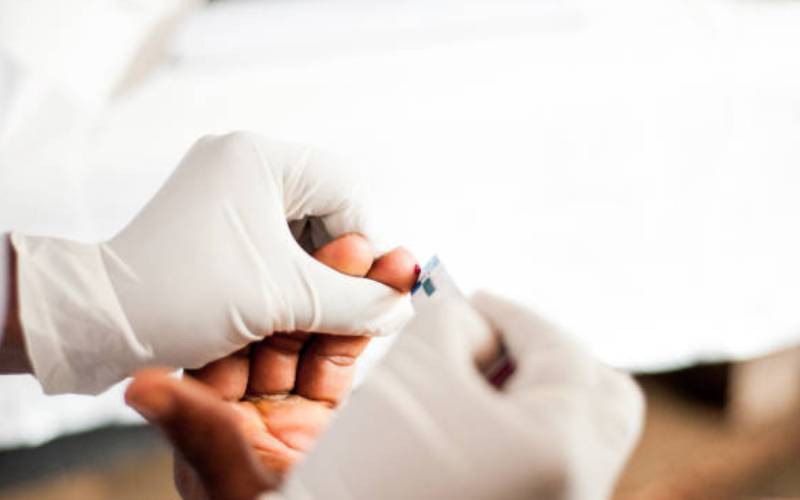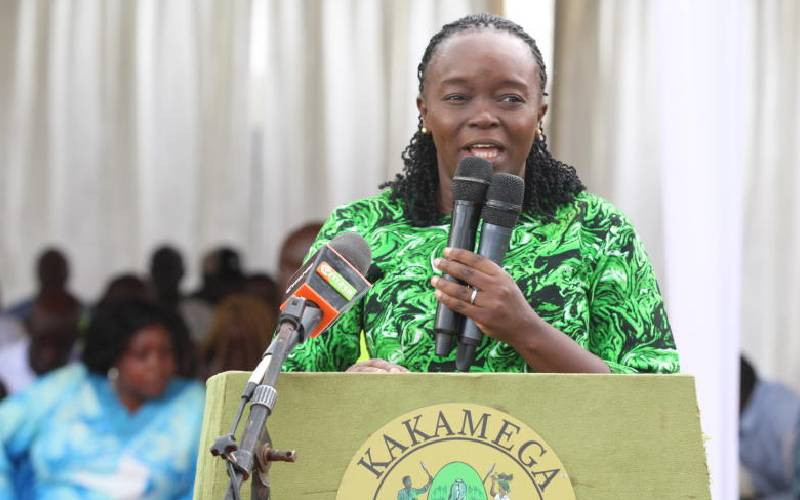
The state of health services in the counties is unhealthy and sickening.
That was the saddening verdict governors meeting in Meru for their annual conference returned yesterday in explaining the poor provision of diagnostic and treatment services, which are a matter of life and death.
But the governors, who now manage the devolved services, blamed shortage of qualified personnel, poor facilities and funding gaps by Treasury, for poor health services in the devolved units.
On the back of workers’ strikes that have paralysed health services in some counties, participants at the third Devolution Conference interrogated human resources, infrastructure and equipment in the health facilities.
Concerns about the handling of the Sh38 billion leased medical equipment and inadequate resources to improve the welfare of workers and finance programmes like the free maternity services dominated discussions at the talks convened to take stock of implementation of devolved governance, three years later.
Counties have been rocked by strikes as health workers demand higher pay and promotions. County governments, however, accuse the national government of devolving the health function but retaining the bulk of the funds.
Governors Jack Ranguma (Kisumu), Paul Chepkwony (Kericho), Kivutha Kibwana (Makueni), Ali Roba (Mandera), Josphat Nanok (Turkana) and Isaac Ruto (Bomet) expressed reservations on the implementation of the disputed Medication Equipment Service (MES), free maternity programme, immunisation and recruitment of health workers at the counties.
They criticised disbursement of Sh700 million to individual accounts of county coordinators by the ministry, saying it contravenes the Public Finance Management (PFM) Act.
“We need to review this matter with the Government. We must ensure we follow the law,” Ranguma, who is also the Council of Governors (CoG) Health committee chairman, told participants.
County governments, however, praised the progress made in discharging the function, which is 90 per cent devolved, despite reduced allocation of resources and bottlenecks owing to funds held at the national level.
“The transfer of the health function has been a bumpy ride. In the beginning it seemed like someone was trying to set us up against the doctors and public. Things are now in place despite some teething problems,” noted Mr Ranguma. The governors rooted for training and hiring of skilled medical personnel and equipping health facilities with modern equipment to improve healthcare in the counties.
They stressed the need for counties to be assisted in training more community health workers and midwives to help reduce child mortality rates.
Mr Nanok said counties such as his face the challenge of reaching and helping mothers in local communities because the health personnel lack the necessary knowledge to attend to mothers.
“We don’t have the personnel with the right qualities to send to remote areas people who can speak local languages. We need more people trained to serve locals,” he said adding that counties are now competing with each to hire qualified staff.
health policy
“Counties are competing for doctors and nurses, so there is need to train more people to serve remote areas,” Nanok said.
The Government was also criticised for failing to enact a health policy, yet Parliament is already considering the proposed Health law.
The absence of Health Cabinet Secretary Cleopa Mailu to respond to queries, including the disbursement of donor funds, disappointed participants.
Ranguma said: “We have been having very good consultations with the CS and we agreed to work together. I am surprised he is not here, yet we agreed to begin on a clean slate from now onward. I will hold him to the truth of these statements when we engage at another level.”
He insisted that the Health Bill cannot be enacted before the policy is in place. “We cannot have a health law before policy is in place. We are yet to agree on the proposed policy and it is under consultations,” said Ranguma.
Prof Chepkwony argued that counties should embrace traditional medicine in remote areas. “Possibly there are about 60 per cent of Kenyans who are using alternative medicine, instead of the conventional medicine. I treat people using alternative medicine. The idea is to find ways of mainstreaming the alternative medicine (practitioners), such as traditional midwives,” he said.
He added: “Alternative medicine is very old but conservatives still believe in them. We can integrate traditional and modern medicine.”
Unicef’s Pirkko Heinonen noted that the had been a reduction in child mortality rates, but stressed the need to get more women to deliver babies in hospitals. “There has been progress in the past five years but we could do better in having more women deliver in hospitals. Child mortality rates have not reduced substantially,” she said.
But the number of those immunised in counties was still a concern.
Mr Roba said there had been mass movement of doctors and teachers from his county because of the terrorism threat. “We lost 90 per cent of our personnel but we have now recruited 93 per cent of them from our county. We have also employed 950 untrained teachers and this resulted in 450 students joining university as compared to the period before, when only 20 transited to the higher institutions,” he said.
Senate Health committee vice chairperson Zipporah Kittony said counties’ budgets should address lack of sufficient funds for the health department.
Intergovernmental Relations Technical Committee Chairman Karega Mutahi concurred with Ranguma that there was no health policy to direct how the function was implemented. “The health policy is not in place, yet there are health bills. Kenya is the only place where there is a law before policy!” exclaimed Prof Mutahi.
“We have the community health workers on the ground but they are just volunteers who have a passion to serve but they don’t have training. We should emulate Ethiopia,” he said.
United Nations Population Fund Representative Siddharth Chatterjee said some counties had rejected doctors from the national government because they do not ‘belong’ to the counties.
Dr Ouma Ogello praised Ruto for being the first governor to raise the salaries of health workers. He lamented that the tension between counties and the national government was hindering service delivery.
 The Standard Group Plc is a multi-media organization with investments in media platforms spanning newspaper print
operations, television, radio broadcasting, digital and online services. The Standard Group is recognized as a
leading multi-media house in Kenya with a key influence in matters of national and international interest.
The Standard Group Plc is a multi-media organization with investments in media platforms spanning newspaper print
operations, television, radio broadcasting, digital and online services. The Standard Group is recognized as a
leading multi-media house in Kenya with a key influence in matters of national and international interest.











